Parliamentary Proceedings are the most important part of any democracy. It is essential for citizenry to keep a tab on these proceedings to understand the functioning of their representatives. Here is a short guide on how one can follow the proceedings in Parliament.
The Proceedings of Parliament are the most important part of any democracy. The proceedings include Legislation, Debates on the pressing issues, Questions by Members of Parliament (MPs) and answers by the Government of the day among other things. While the proceedings are telecast live on both the Lok Sabha TV and Rajya Sabha TV, it is not possible for most people to watch them through the day. The Lok Sabha & Rajya Sabha websites are updated everyday (when the parliament is in session) with all the information that a citizen needs to understand their functioning.
Here is a dummy’s guide on how a common citizen can follow the proceedings of the Lok Sabha & Rajya Sabha.
Step 1: Start with the Provisional Calendar
Before every session of Parliament, the provisional calendar of both the Lok Sabha (LS) & Rajya Sabha (RS) is uploaded onto the respective websites. The provisional Calendar lists down the broad business planned for the entire session. This list is subject to changes, but it does give a basic idea of what is planned.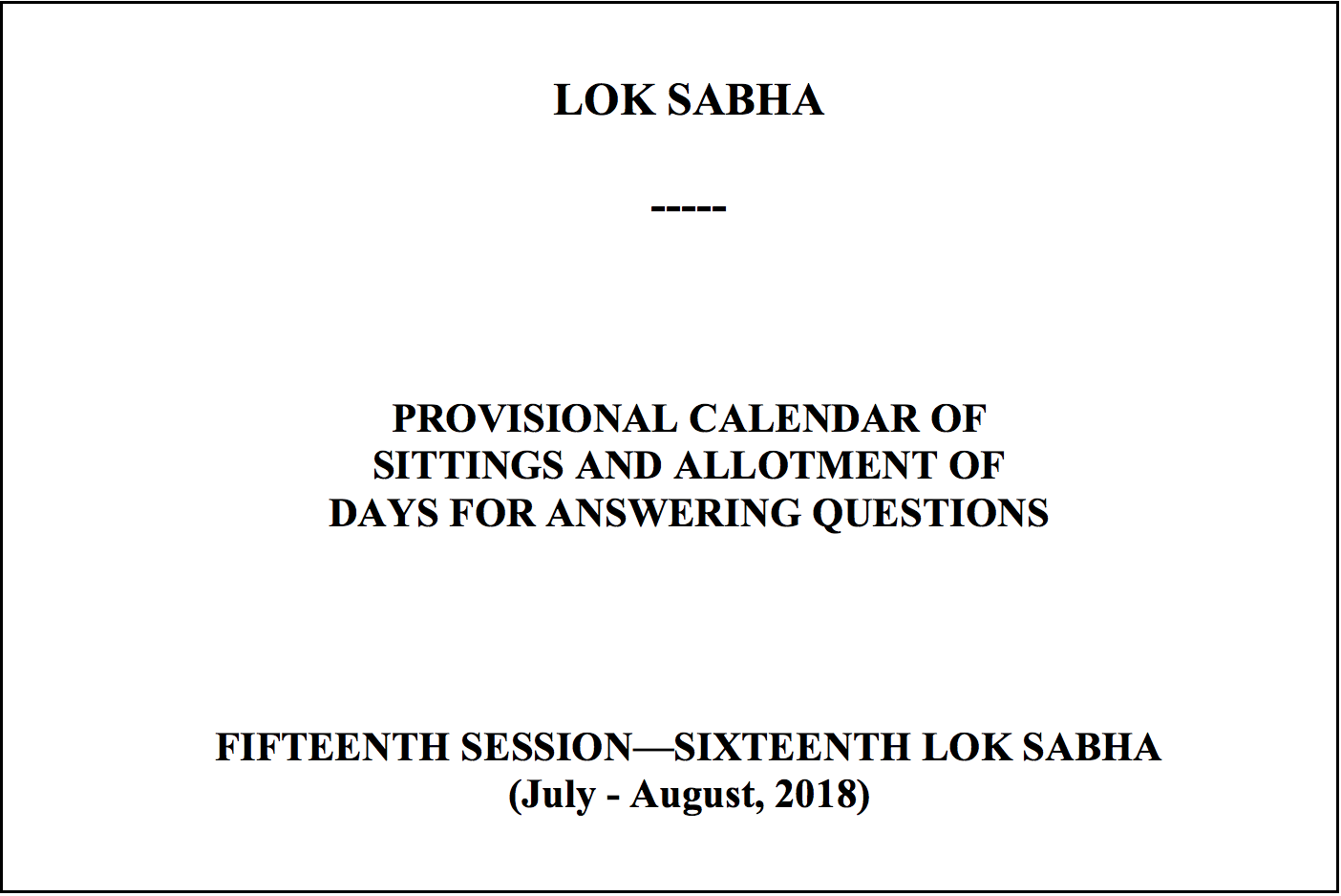
Step 2: Check the List of Business planned for each day
The list of business (the proposed plan) for every single day when the parliament is in session, is uploaded on the Lok Sabha & Rajya Sabha websites. The List of Business contains the main agenda items to be taken up on that particular day and is generally issued daily during the session period, two days prior to the sitting date. The final agenda is contained in the Revised List of Business and is issued the preceding working day of the sitting. A Supplementary List of Business is issued to cover any additional items being taken up at short notice, on the same day. Sometimes, a second Supplementary List of Business is also issued the same day.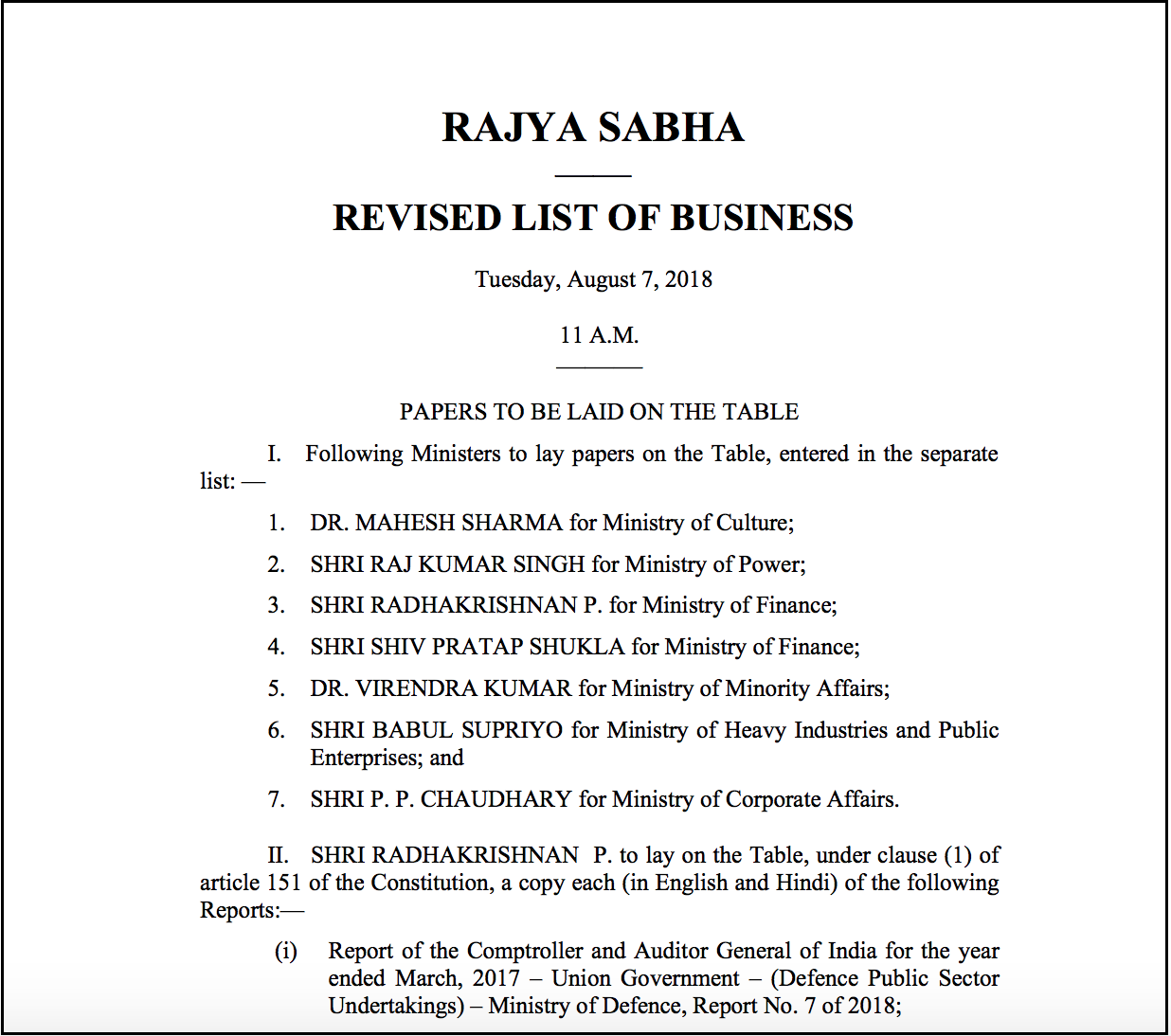
Step 3: Read the Bulletins issued at the end of the day
At the end of each day of sitting, the Lok Sabha & Rajya Sabha secretariats come up with two bulletins. The first bulletin is more like a summary of the day’s proceedings. The second bulletin is about important announcements or information provided during the day. For those who have very little time to spare, the bulletins are a great way to keep up to date with the proceedings. For e.g., the details of the debate on ‘The Scheduled Castes and the Scheduled Tribes (Prevention of Atrocities) Amendment Bill, 2018’ are part of the Lok Sabha bulletin for 06th August 2018. The bulletin lists down the total time taken for the debate and the names of the members who participated in the debate.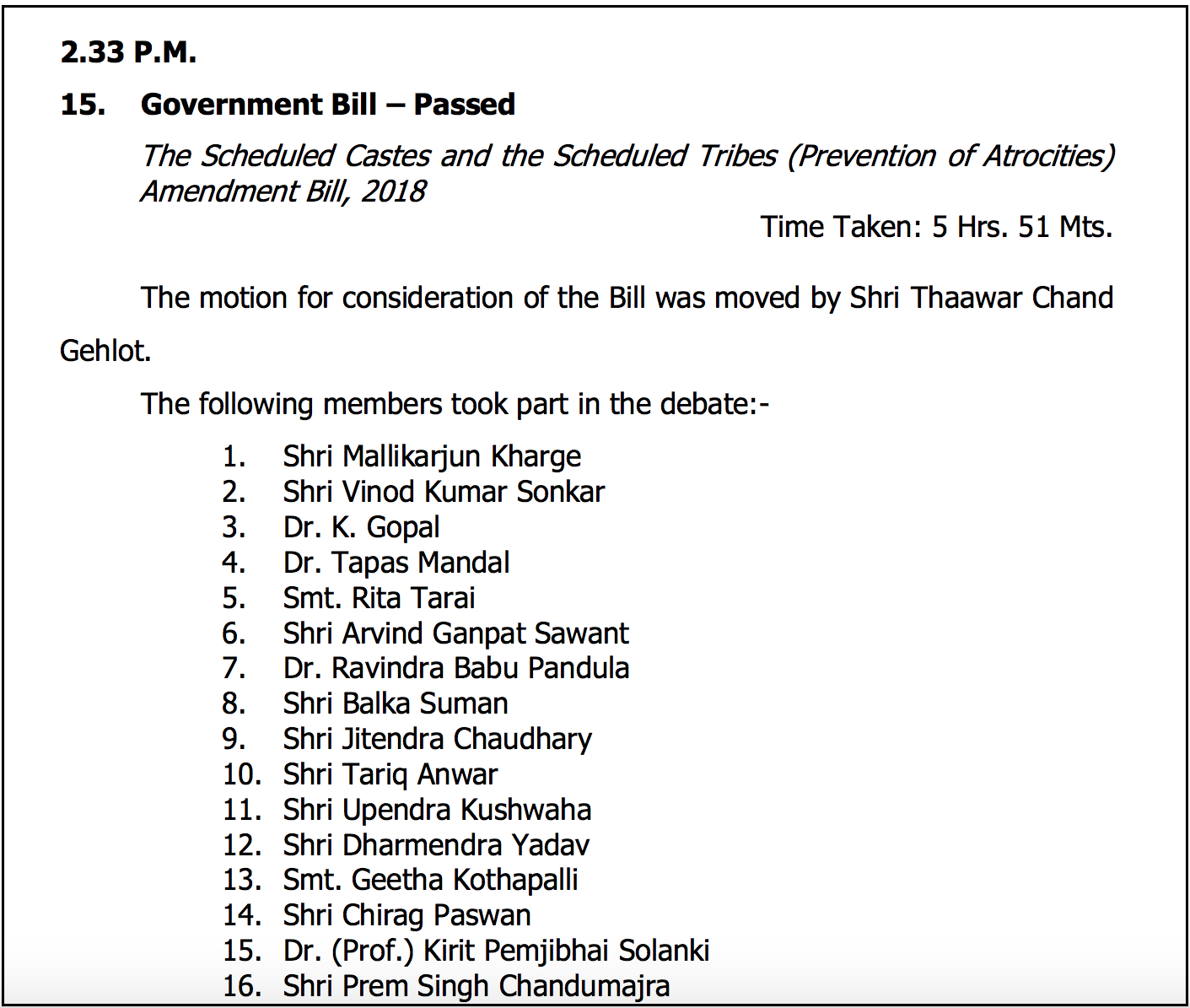 If any particular bill was introduced, discussed, or passed by the Lok Sabha or Rajya Sabha on any given day, those will be available on both websites. You can search for a specific bill and download the text of the bill.
If any particular bill was introduced, discussed, or passed by the Lok Sabha or Rajya Sabha on any given day, those will be available on both websites. You can search for a specific bill and download the text of the bill.
Step 4: Search for the Questions & Answers
The question hour is slated for 11 am every day (for an hour) in both houses. This is a very important part of the proceedings where MPs ask questions on important subjects and the respective ministers respond with data, information & other details. These are also a very important source of information since a lot of the latest up to date information/data is provided in the form of answers which are not usually available elsewhere. The day-wise list of questions asked by the MPs is available on the websites of Lok Sabha & Rajya Sabha. You could keep a tab on the questions and the answers given by searching the question database on both Lok Sabha & Rajya Sabha websites. You can also download a pdf version of the question & answer once you go to a specific question.
Step 5: Read the verbatim debates
For those who are interested to read through the detailed proceedings, the Lok Sabha & Rajya Sabha websites have uncorrected verbatim debates hour by hour. The uncorrected debates might also contain text that is directed to be removed from records by the Speaker/Chairman. Both the websites also have a synopsis document capturing summary of the debate.
Other information available on the LS & RS Websites
Wit & Humour: Apart from the serious discussion, there is also a bit of Wit & Humour in these debates. These details are also available on the Lok Sabha & Rajya Sabha websites.
Special Mentions: Apart from the regular questions & debates, MPs can raise pressing issues as special mentions with prior approval of the speaker. This list is also available on both the websites.
Resume of Work: At the end of every session, the resume of work is prepared & uploaded on both the websites. This document has detailed information on the important business that took place during that session.
Statement of Work: The statement of work document has detailed statistical information on each session like number of sittings, time of sittings, time lost due to disruptions etc.
Have you found this useful? Let us know what you found on the Lok Sabha & Rajya Sabha websites by writing in to hi@factly.in


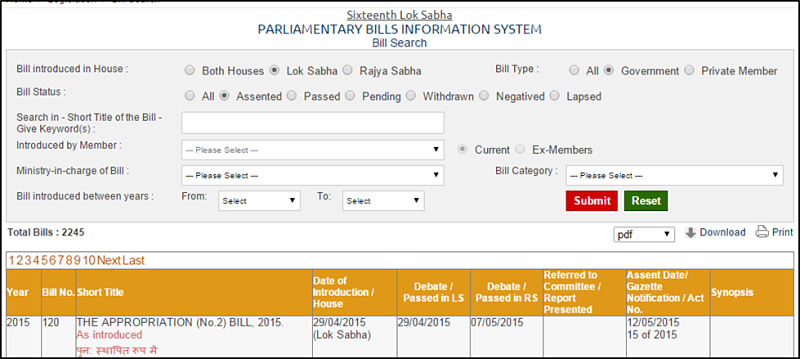
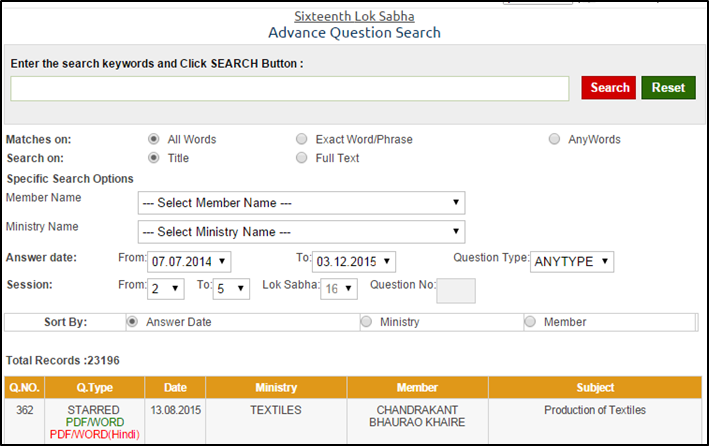
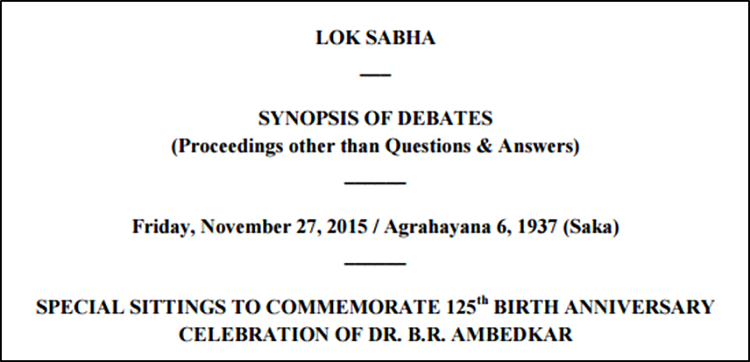

9 Comments
Hi,
Thanks for this article.
Can you publish an article that’ll cover more basics like what is Q hour, zero hour, amendment, Business of the day etc. I am sure a lot of people including me are not aware of many basics in the parliamentary proceedings.
Thanks,
Krishna
You might find this page useful: http://164.100.47.192/loksabha/FAQ.aspx
Pingback: Here Is How You Can Follow The Proceedings Of Parliament | Wiki News India | News In All Indian Languages
Pingback: Rural India Is Far Behind Urban India In Every Indicator Of Progress | Wiki News India | News In All Indian Languages
Pingback: Rural India Is Far Behind Urban India In Every Indicator Of Progress | Youth | ReporterIndia.com | English News Website
Hello, this is very interesting. Are there similar ways of following the proceedings of the state legislatures?
As of Jun 2017, Links are broken 🙁
Thanks for bringing to this to our notice. We have updated the links. The LS website was moved onto a different server recently, hence the issue. Let us know if its working now
Thanks. I m a social science teacher …I m going to use it in my class and will share my experiences